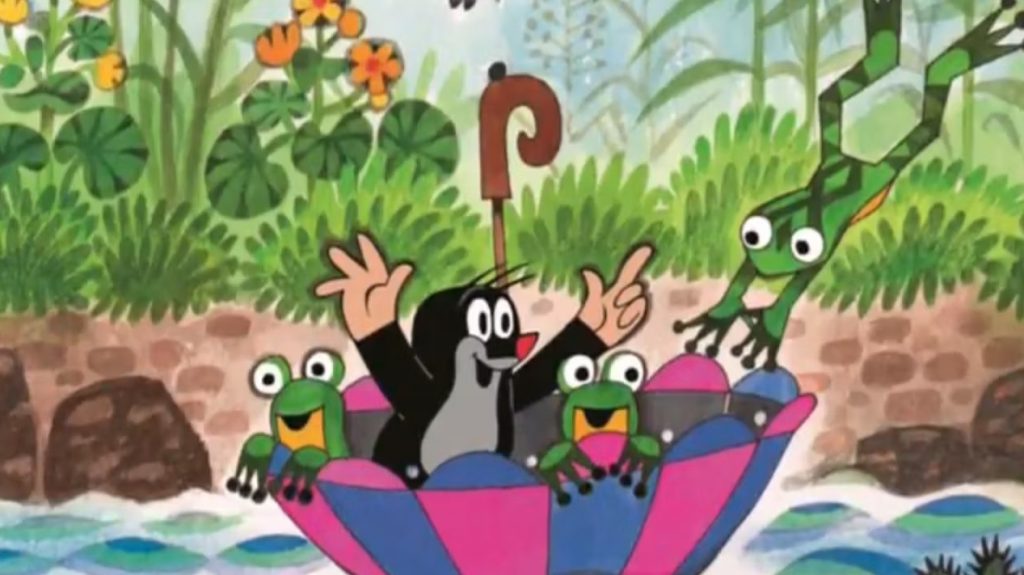Human-centric cities are much more pleasant than the centrally planned monstrosities during communism, but it is not only people but the flora and fauna that can also be thankful for free markets and democracy.
One of my favorite books as a little child was a story of Krtek, the beloved mole from the cartoons of Czech artist Zdeněk Miler. The story, written during communism, depicts how the little mole with his critter friends find themselves in the middle of a city development project. The trees in which they live are cut down, and a big, mechanical metropolis is raised in their place. The little creatures are given a slip of paper in which it is written they must not be harmed, so the authorities kindly provide them with an apartment on the top floor of a tower block. In order to accommodate them better, the flat is furnished with paintings of the sky, a sun-shaped lamp, artificial grass on the floor, and inflatable rubber trees.
At first, Krtek and his friends are intimidated by the hustle and bustle of the city and all the artificiality of their new home, but they soon grow accustomed to it. The authorities give them food, which they are initially afraid of, thinking it might also be fake, but then they start enjoying the vegetables and the juice they receive. However, when they try to open this latter with a corkscrew, it punctures the rubber interior destroying everything. Fearing punishment from the authorities, they panic and flee from the city. Eventually, with the help of some swans, they find their way back to a forest.
Although it is a children’s story, it offers some real-life insights into why communism and its central planning are inherently doomed to fail.
1. Environmentalism
Communism is materialistic. Resources are viewed as a utilitarian necessity for production. Intrinsic values such as beauty are not part of communist thinking. Consequently, nature conservation was not really a priority of communist regimes. In contrast, countries suffering from the yoke of the consequences of Marx’s gibberish were truly polluted. Energy poverty led to illegal logging, and even today European countries that were under the influence of the Soviet Union struggle to improve the situation.
2. Central Planning
Communism believes that a central authority knows what is best for everyone, uniformly. They allocate resources, but in order to do so there must be no private property. The story of the little mole illustrates this problem: he is given a flat, because that is what everyone supposedly needs according to the plan. However, he doesn’t have true ownership, so there is no real incentive to take care of it. In such a system there is no real reward for excellence, and lack of motivation leads to dwindling production as demonstrated by the collapse of the Soviet Union and the Eastern Bloc.
3. Fear of Authorities
When Krtek’s apartment is destroyed, he and his friends fled out of fear of punishment. Their fear is justified, as sustaining a communist regime requires a strong and ruthless police force. Since the flat belonged to the state, the state had to punish them for damaging it. Communist regimes were not known for upholding the rule of law or respecting human rights.
Nowadays, however, the situation is different. Cities are striving for improvement even on post-communist countries. The drab blocks of flats and concrete jungles of soulless cities are now different. They cater to the needs and wishes of their citizens. City planners usually listen to the residents and try to cater to them. Private developers are allowed to compete and this way they race to cater the wishes of people. Environmentalism is fashionablem, leading to the proliferation of parks and wildlife.
Communist cities may have resembled the metropolis depicted in the tale of Krtek, albeit far less appealing in reality. Today, cities have significantly improved, thanks to democracy and free markets. They are no longer soulless but life centric. Even Krtke would likely enjoy living in them now.



